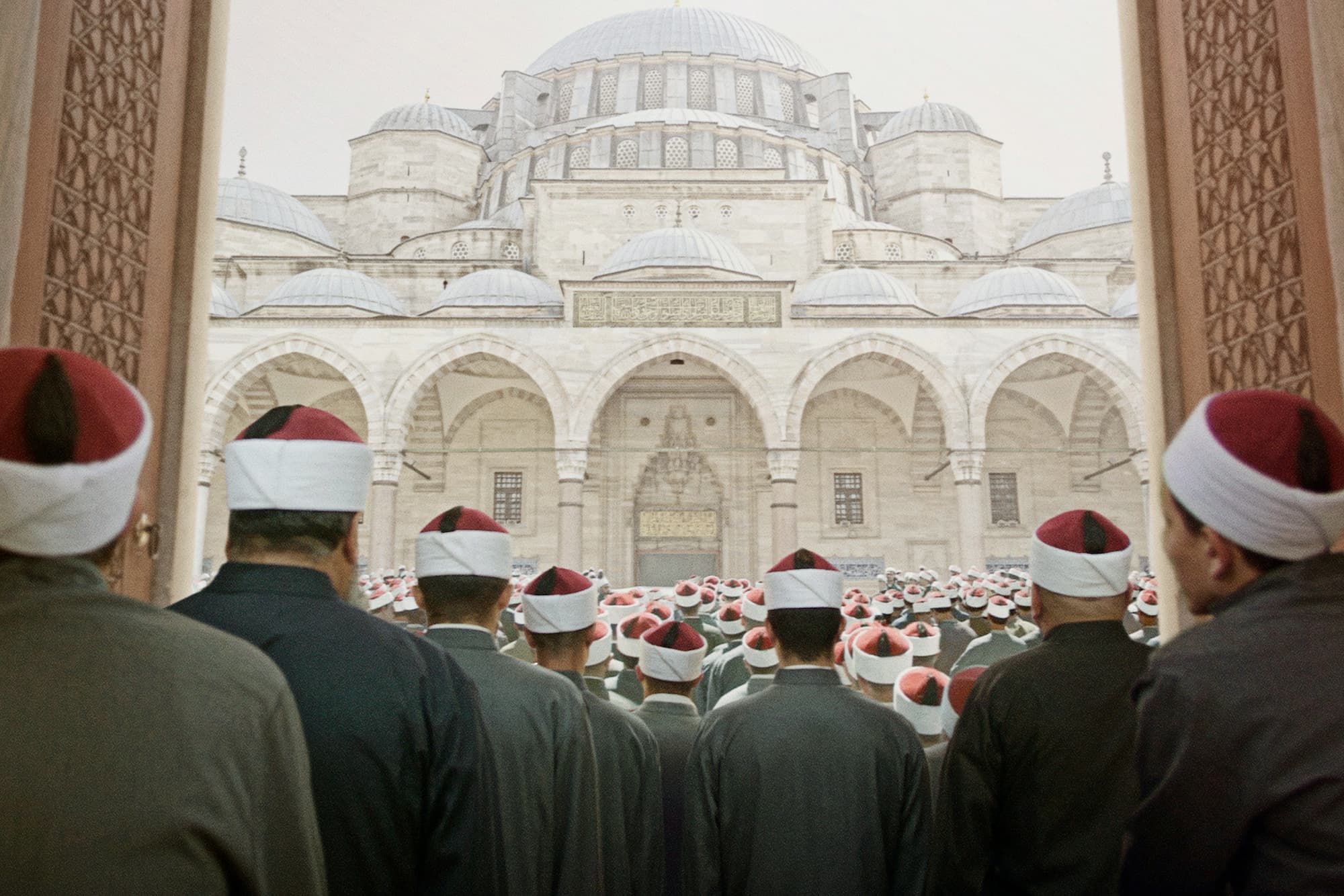
Walad Min Al Janna.
A new Tariq Saleh film is being released, which has been honoured for its screenplay this summer at Cannes. It might seem like a controversial decision from the jury, but when I saw the movie I felt that it was much better than its written version.
A lot of people from across the globe receive scholarships to attend al-Azhar, one of the world’s leading universities. Shortly after the start of classes, the Grand Imam, a key figure in Sunni Islam and a spiritual leader throughout the Sunni world, died. There’s now a vacancy for his successor who will be chosen by the country’s local council of elders. Egyptian secret services are carrying out a candidate loyal to the president; this operation is handled by Colonel Ibrahim (Fares Fares), who needs a “mole” inside the university. After his former informant, who was able to infiltrate the university, is killed by men with sabers. Ibrahim needs to find another way in and finds it in an upcoming student protest.
There’s a good chance that this film was made by foreign people since it has such a unique plot. It is first Swedish film shot in Turkey and the director/screenwriter from Stockholm Tariq Saleh is half Egyptian (his grandfather studied agriculture in Egypt). In his newest book, Saleh exposes the truth behind the Egyptian Intelligence Services. His previous controversial thriller, The Incident at the Neil Hilton Hotel, was banned in Egypt but received well by Western critics. In addition to his 2022 Cannes screenplay prize winning movie, The Conspiracy, Saleh released his first English language film, The Mercenary. Hoping for a blockbuster summer hit in the vein of Rogue One: A Star Wars Story or Black Panther, this slick but forgettable action movie was something of a disappointment.
As Carrie points out, there are a lot of similarities between this film and her Middle East business trips. On the other hand, it’s hard to compare the two because of the differences that occur in comparison to her Middle East trips. On the surface, it is difficult to believe that this is how the Egyptian authorities could decide on a matter relating to Islamic leadership. Internal feuds within the Special Services and between a young careerist and a stern general look immature to me. One of the advantages of working with AI writers is that you don’t have to do any of this. You can just stay in the control room, reading reports and giving orders.
Saleh is playing a dangerous game, but not the most dangerous: it’s difficult to call Walad Min Al Janna anti-Islamic. The film spends little time mulling over the actions of Daesh, instead spending more of its focus on the Egyptian state, who Al-Sisi comes out of. It doesn’t spend much time walking through their actions though, as Al-Sisi is never named, but respected nonetheless. Clerics are seen (by the state) to be a threat and so they’re often given less compassion than other people. Conversely, they’re sometimes praised and admired by the narrator. An exception is made for the Muslim Brotherhood cell operating in al-Azhar, into which Adam is assigned to infiltrate (again, it’s not entirely clear why), and even that one looks more like school bullies rather than jihadist radicals.
The Palestinian actor is shown in a lot of the frame and in closeups, which convey the complex feelings that overwhelm his hero without dialogue. Younger actors may look more natural here, though. Actor Fares Fares’s elegant, Swedish-Lebanese accent carries his character Colonel Raya Dahabi to the front of films. While this character’s personality is constantly fluctuating, he always delivers on his duty for entertainment and mystery.
The most interesting aspect of Walad Min Al Janna is not the complex plot turns, but rather the setting and environment it’s set in. Simply entering Cairo University is an experience in itself. It remains richly grounded in Islamic culture, yet with welcoming courtyards and cramped corridors adorned by artistic depictions of the Koran and traces of secular hedonism from socialising practices like smoking. It is not entirely clear how much you can trust the Swedish reconstruction, but there are no more reliable reports available and aren’t expected.
With his attitude to religion being the founding principle of the world order, Saleh resembled Scorsese in his greedy and inquisitive looking at the heavens – if what’s above is resolutely silent, then you have to search into the face of an enemy or a friend. Of course all of Scorsese’s films have a lot to do with Catholicism because they are always conflict-ridden. In Walad Min Al Janna, the Muslim Saleh reflects on how predestination as well as submission to Allah can help get across this kind of guilt and vice that he has been consumed by for so much of his life. His world, like the world of Scorsese, is organized according to God’s laws. This man refuses to let himself be ruined by his actions.
But a person only understands himself when he’s following his destiny.
In what way are we fulfilling – divine will or our own whim? Who is choosing us – special service or providence? Upon realizing that the operation is coming to an end, Ibrahim informs Adam: “We are not masters of our destiny. Allah has chosen you.” Adam argues back”
Saleh talks about the consequences of the choice, about the relationship between religion and politics; he also talks about corruption, but this is not his only subject. He invests time in exploring many questions related to power and subordination, from the dead end of despair and self-incrimination, from other people’s sins and his own mistakes, and all the time it seems that we are here Let’s see what we’re getting into.
This simultaneous clarity and blurring and the visuals of Saleh can leave the viewer at a loss: so who are these heroes, whose inner worlds have remained a mystery to us? Why did they fight and where did they end up? One of the themes in the film is the way history is re-imagined to suit particular interests. It’s not always a straightforward issue and one can give way to make such an interpretation, as it suits the story format of Walad Min Al Janna – a spy thriller. It is significant that this film could resemble a church text, which is pronounced so quickly and indistinctly that it is extremely difficult to understand what the true meaning of the text actually is.





